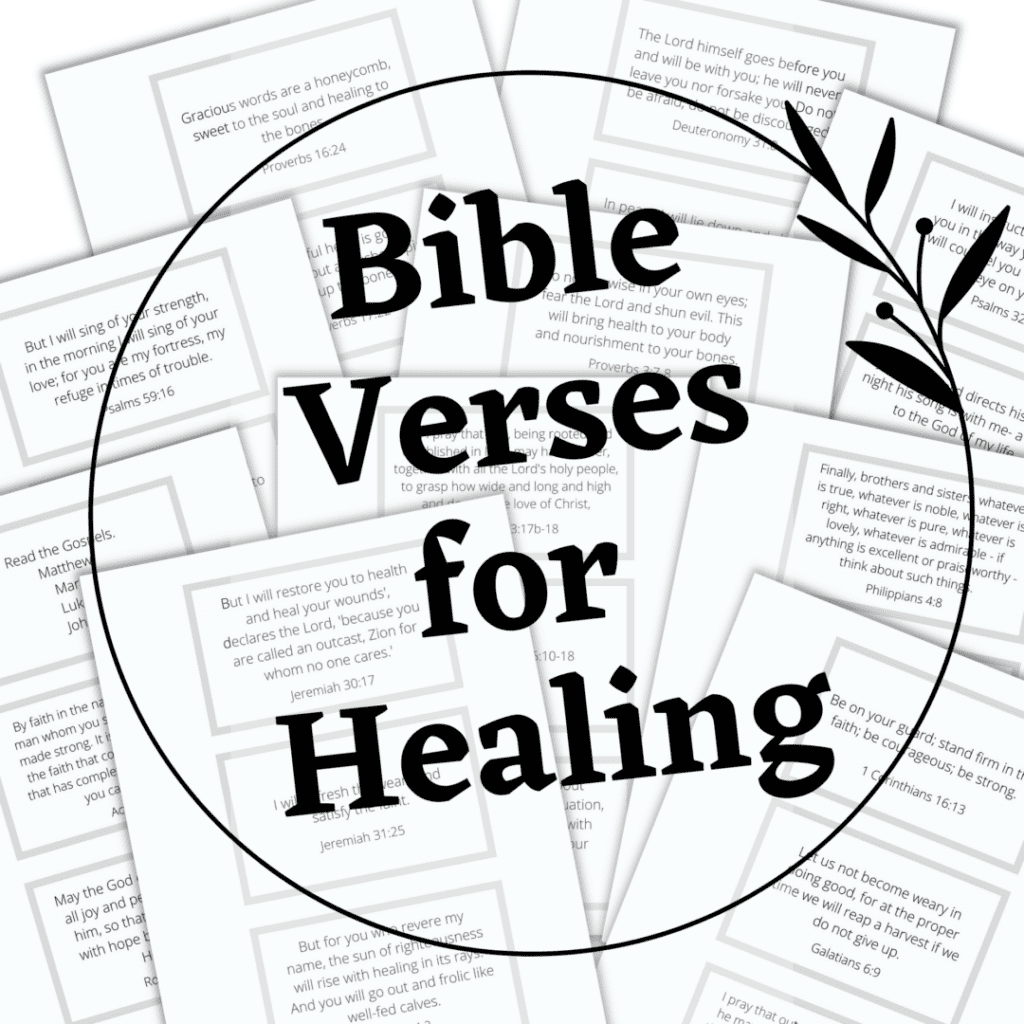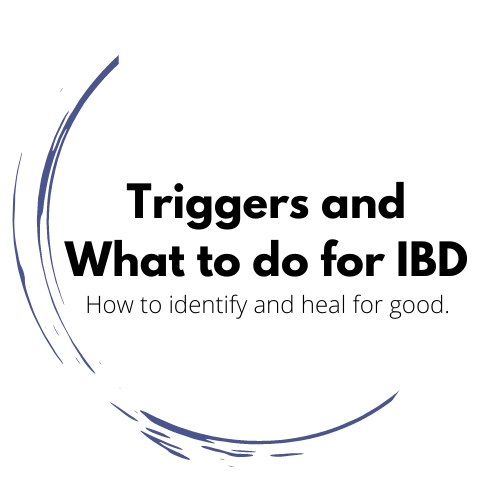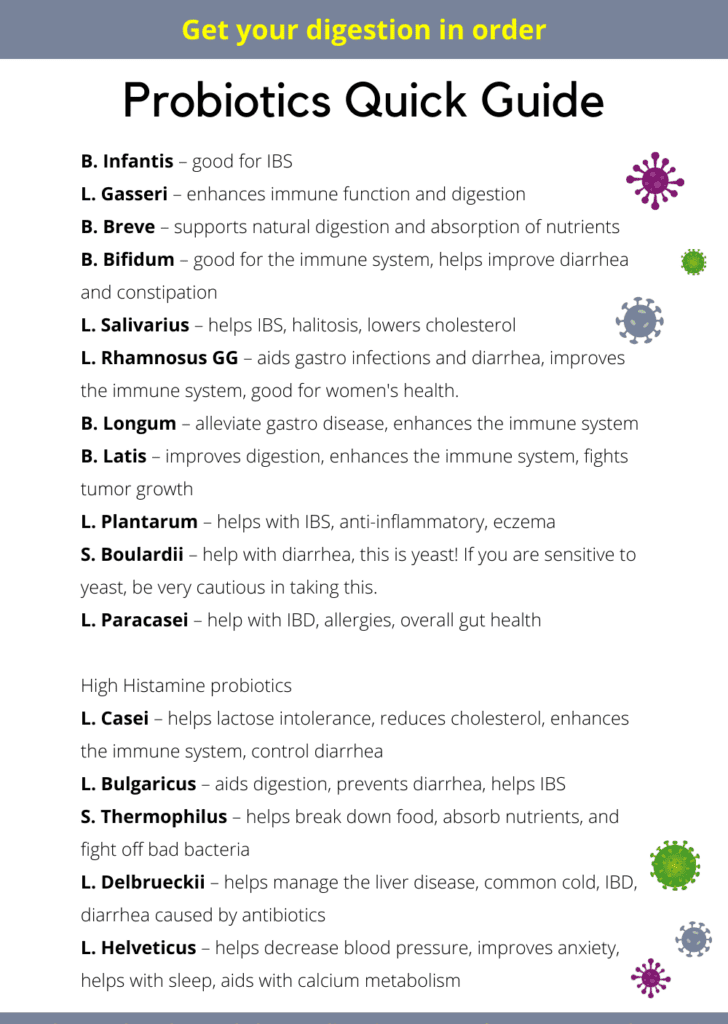If there is one thing in how to help your digestive system it is to figure out what is causing the digestive issues. When it comes to gut cramping and rushing to the bathroom it’s usually a bad burrito and clears up in a few days on its own, but when the bowels howl longer than normal something needs more attention. In my own personal experience with IBD (Intestinal Bowel Disease) over the years and with hours upon hours of research, I’ve found 10 major triggers that can set people off. If I had known these triggers earlier, I would have healed a lot faster. My hope is that this post will save you a lot of time and frustration. Let’s take a look at what might be triggering your lingering symptoms so you can get on the right intestinal track.

Step 1 in how to help your digestive system
Ever since I started to talk about my own digestive distress, more and more people have opened up to me about theirs. Let’s face it, talking about cramps and diarrhea is not something people want to talk about, but these things DO need to be talked about. A huge part of healing is understanding what’s going on and why. Knowing this, not only gives you peace of mind, but a solid direction to focus on in your healing journey. Discovering your cause can be a frustrating maze but it could be as simple as asking around and doing some research. You never know what someone is going to say that could be your ticket to healing.
Let me reiterate that when people are silent about their chronic digestive system it is only going to make them worse. What ends up happening is despair, loss of hope, loneliness, and settling with chronic misery. Self-confidence goes down the drain and limitations in physical activity and social outings go on the wayside. You do not deserve to live like this!
Listen up, this is super important
Another thing about “ignoring’ this issue is that if left untreated, it will lead to other misery down the road; for instance, vitamin absorption problems, depression, stress, hair thinning, and more. I’ve been there, done that, with tears and frustration and a sink full of hair. There is nothing worse than not understanding what is going on and if you’ll ever get better! So please, listen to how to help your digestive system if you want to get better.
I HIGHLY recommend reading the “Triggers and What to do for IBD: How to Identify and Heal for Good” ebook. I wish I had this information when I was having problems. This book would have saved me LOADS of time and frustration. Download, read, and heal. It’s a quick read packed with answers that will help you.
Encouragement Coaching Moment
First off, you will get better. If you want it bad enough, you will go into remission and will live a life of no more cramping, no more rushing to the bathroom, and no more uncertainty. The work it takes to heal is totally worth it. It is possible to manage this thing without having to take any pharmaceuticals! The body will heal if you help it.

Your healing journey begins with this
My journey has been quite a road. I am not a doctor or gastroenterologist, but I have experienced firsthand what it’s like to carry colitis and all that goes with it. With an un-relentless drive to figure it out, I’ve tried many different treatments and have spent hours and hours researching (probably too much time) to get to the bottom of my imbalance. After all, when something isn’t right, things aren’t aligned. So this bullcrap all starts with what threw you off in the first place.
How to help your digestive system starts with questions.
Ask yourself the following questions and maybe even jot down your answers on a piece of paper. I have kept a “digestive journey” journal where I write down my flares, what might have happened before it, and what I tried to manage it. Answer these questions to help you figure your digestive issues out.
Was I recently sick? Stomach bug? Food poisoning? Bacteria infection?
What are my hormones doing?
Did I eat something funny? Eat too much of something? Eat the same thing every day?
Have I been taking NSAIDs (ibuprofen, Tylenol, etc) regularly?
Has my gallbladder been acting up? Do I still have my gallbladder?
What has my stress level been these days?
What exactly am I eating every day?
Is my back out of whack?
Answering these questions might help you get on the right track from the get-go. It’s important to go over these things with your doctor or functional doctor before diving into a treatment plan.
A closer look at digestive triggers
Let’s take a closer look at what could be the cause of your cramps, bloating, diarrhea, loose stools, and stinky gas. When you have a flare, it is usually caused by a trigger. For instance, when I get a flare I can usually figure out what brought it on. Most of the time it was something I ate. But other times it’s been hormones, stress, or even a change in weather or time zones. The body is so amazing when it comes to healing; it wants to be aligned and working as it should. When it’s not, it tells you through pain or digestive distress. Let’s look at a few things that could be causing the alarms to go off.
Again, I’m not a doctor, nor am I trying to be. I share the information I have either experienced myself or am extremely interested in, and then I keep things simple and give you the nutshell version. This post is not intended to be a substitute for professional medical advice, diagnosis, or treatment. Please consult your physician before jumping into new things. This post is for information purposes only and to help you figure out what you might have going on.
IBS
What is IBS anyway? IBS, or Irritable Bowel Syndrome, is simply an angry bowel. For instance, when I was a runner I would occasionally get really bad “poop cramps”, this is what IBS is, cramps out of the blue followed by urgency. With my story, the doctors first diagnosed me with IBS, since I knew what IBS was, I had a hard time respecting their diagnoses. Come to find out what I learned through the years is that if doctors can’t diagnose your digestive problem, they’ll usually say it’s IBS. When I went back to the doctor’s office I asked for a colonoscopy which gave us the real answer. So stick with your gut when you go to the doctor and ask a lot of questions; if they say it’s IBS, ask them why they think so.

Food sensitivities: dairy, gluten, eggs, soy, grains, white sugar, fructose.
Food sensitivities are HUGE triggers that lead to digestive system issues. The number one ‘problem food’ is dairy. So many people have issues with dairy; in fact, I heard everyone is a little sensitive to dairy. Lactose intolerance or sensitivity to whey or casein (a protein found in milk) are a few roadblocks to dairy digestion.
The second big one is gluten. Gluten is the protein found in wheat. People who have Celiac disease cannot have any gluten. Most people with digestive issues steer clear of gluten as well. This bugger is hard to digest and wreaks havoc on your innards. Talk about inflammation! It’s just not worth it folks.
Other popular food sensitivities and allergies are nuts, eggs, soy, white sugar, nightshades, and fructose.
How do you know if you have a food sensitivity?
Pay attention to how you feel after you consume it. Do you have a headache? Is your skin itchy or throat? Heartburn? Do you have gas cramps within an hour of eating? Dizzy? How about your nose, is it runny? What about severe congestion? Are you rushing to the bathroom?
Hormones: can’t live with them, can’t live without them.
This is a tough one to figure out. Do hormones play a factor in digestion? Women get a chance to pay close attention to our system every month (if we’re still menstruating). Both progesterone and prostaglandins can mess with your bowels. Even though prostaglandins focus on your uterus, they can also affect the colon that is nearby. Plus our friend, Progesterone, can pilot our trip to the bathroom more often.
On the flip side, when estrogen declines, cortisol rises which can slow the digestion process down and cause constipation…a.k.a. too little progesterone. Without the proper balance of estrogen and progesterone, your bowels get a bit confused.
Alignment
Who knew that a kink in your back could cause issues in digestion and elimination? The vertebrae in your spine are connected to nerves that send signals to the digestive system which includes the stomach and intestines. When the vertebrae are off or twisted this can affect those nerves and give you symptoms like bloating, gas, diarrhea, constipation, and bladder issues. Before you head to the chiro, talk to your doctor or physical therapist.
A bug
There are some pesky bugs out there. Bacterial infections, viruses, and parasites, all of these cause inflammation. And when inflammation is present and not calmed down, irritation of the intestinal lining is sure to happen. E. coli, Guardia, Norovirus, and the stomach bug are the main culprits of diarrhea, not to mention vomiting. Yes, even though these are short-lived 1-7 days on average, they can mess up your gut flora and cause silent inflammation in your digestive tract.

How to help your digestive system? Reduce stress
Constant stress on the body and mind can be a doozy for your digestion. It can throw your whole system off! From muscle tightness, knots in your gut, to indigestion, stress can physically hurt you. One thing you can do right now in answering the question of how to help your digestive system is to learn some stress-relieving techniques.
Ibuprofen/Tylenol
Nonsteroidal anti-inflammatory drugs (NSAID) like acetaminophen and ibuprofen if taken on a regular basis can actually cause inflammation in your intestines. Yep. Too much of a good thing can backfire. This is true for anything, even food! When inflammation is present, cramps and diarrhea are sure to show up.
Lack of probiotics and digestive enzymes
Sometimes our bodies need a little help getting back on track. Probiotics and/or digestive enzymes are here to save the day. Getting the right bugs in your gut makes a big difference in your digestive health; a game-changer for most folks. The hard part is figuring out what probiotics or digestive enzymes you’re lacking. This is especially important if you’ve been on a regimen of antibiotics. Antibiotics kill everything in your gut, so it’s important to get your gut back up and running as it should. Incorporating probiotics after your antibiotic treatment will help you bounce back a little quicker.
Depending on your condition, probiotics may need to be taken every day. They also help your immune system and even your skin.
If you have heartburn or stomach acid issues please read my post about stomach acid, it goes more in-depth about digestive enzymes and food combining, you will get a digestive enzyme chart as well!

Bile acid
This sounds kind of gross but excess bile acid from your digestive system can cause diarrhea. Bile acid diarrhea (BAD) or bile acid malabsorption (BAM) is what can cause that urgency, watery, and bloating feeling. Bile acids are produced by your good ole liver and stored in your gallbladder. Their job is to help break down fats to put it simply. For people who have had their gallbladder removed, you may experience a bit of diarrhea…at least now you know why. However, sometimes the body can get confused and cause large amounts of bile acids to exit into the large intestine, hence, diarrhea. Normally there is very little bile acid in the large intestine. I highly recommend you continue to investigate this; check out Verywellhealth.com for starters.
Yeast
Where do we start with yeast? Is it good or bad? Well, if you get too much of it, it can trigger diarrhea. Along with yeast-associated diarrhea, you may see other signs of too much yeast by looking at your tongue. If it has a white coat on it, you probably have more yeast than you need. You could also have sinus infections, fatigue, and skin fungal issues. The medical term for an overabundance of yeast is Candida. Check out Dr. Axe about Candida.
Histamine
Histamine is another big trigger. The nutshell about high histamine; as you age your DAO enzyme depletes. This DAO enzyme helps regulate histamine; it aids in breaking excess histamine down. When it depletes, it doesn’t work as well and histamine builds up in your system. As histamine increases in your body, you may experience digestive issues, itching, headaches, and sore joints to name a few.
Before you buy antihistamines, please know that antihistamines may work for stuffy noses, but they don’t usually work for diarrhea and low DAO enzymes. I’ve done the research.
What can help increase the DAO enzyme is vitamin C, P5P (the active form of vitamin B6), and magnesium citrate or glycinate. Also, it’s best to get into a rhythm of eating low-histamine foods and knowing your own personal limits. It takes about 2 weeks to get your histamine levels back to your baseline after you have changed your diet and have done your part to help your body. Again, I am not a doctor of any kind, this is what I’ve learned; always proceed with caution and talk to your doctor or functional doctor before trying anything new. I don’t know your body, diseases, or imbalances.
In conclusion: how to help your digestive system
WHEW! That was a lot to take in. But how to help your digestive system is no joke. From my personal experience, I wish I had this post in my hands when it all started in me. Again, I can’t tell you how many hours I researched diarrhea. I’ve probably clocked as many hours as a gastroenterologist. Anyway, healing is possible, but you must want it to happen. And if you really want it bad enough, you’ll be able to manage it without drugs and their nasty side effects. You got this. Healing takes time so keep moving forward. To help you get started in healing your gut I wrote this mini book: Triggers and What to Do for IBD: How to Identify and Heal for Good. It only takes a few minutes to read, but could contain your path to healing! Download it today and start reading!
Please note: talk to your doctor or find a functional doctor before you jump into anything new. If you want to go the natural way without prescriptions, I’ve had success with a functional doctor.
Before you go, check out these other great posts:
Chronically sick? Choose the right water filter.
Food Combining Does What? Manage stomach acid now!
9 Gift Ideas to Warm the Body & Soul
Quick Healthy Meals On a Budget? 5 Criteria



